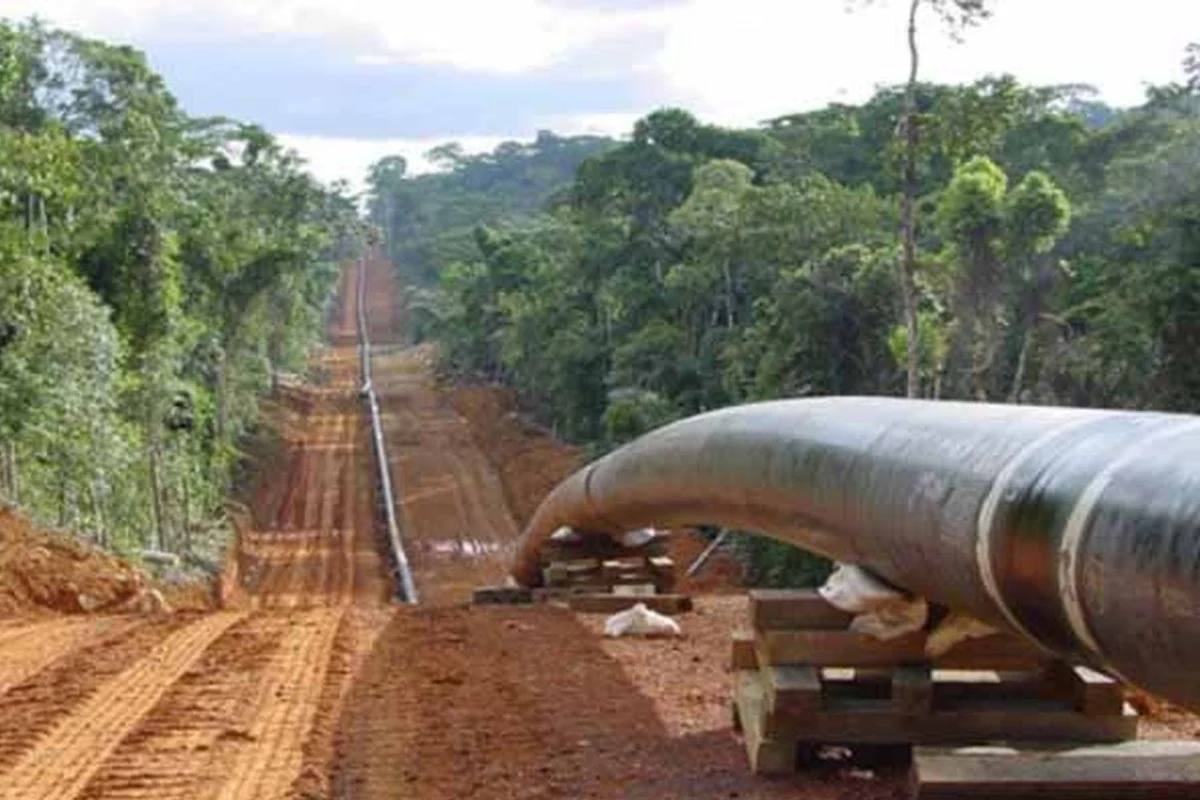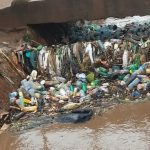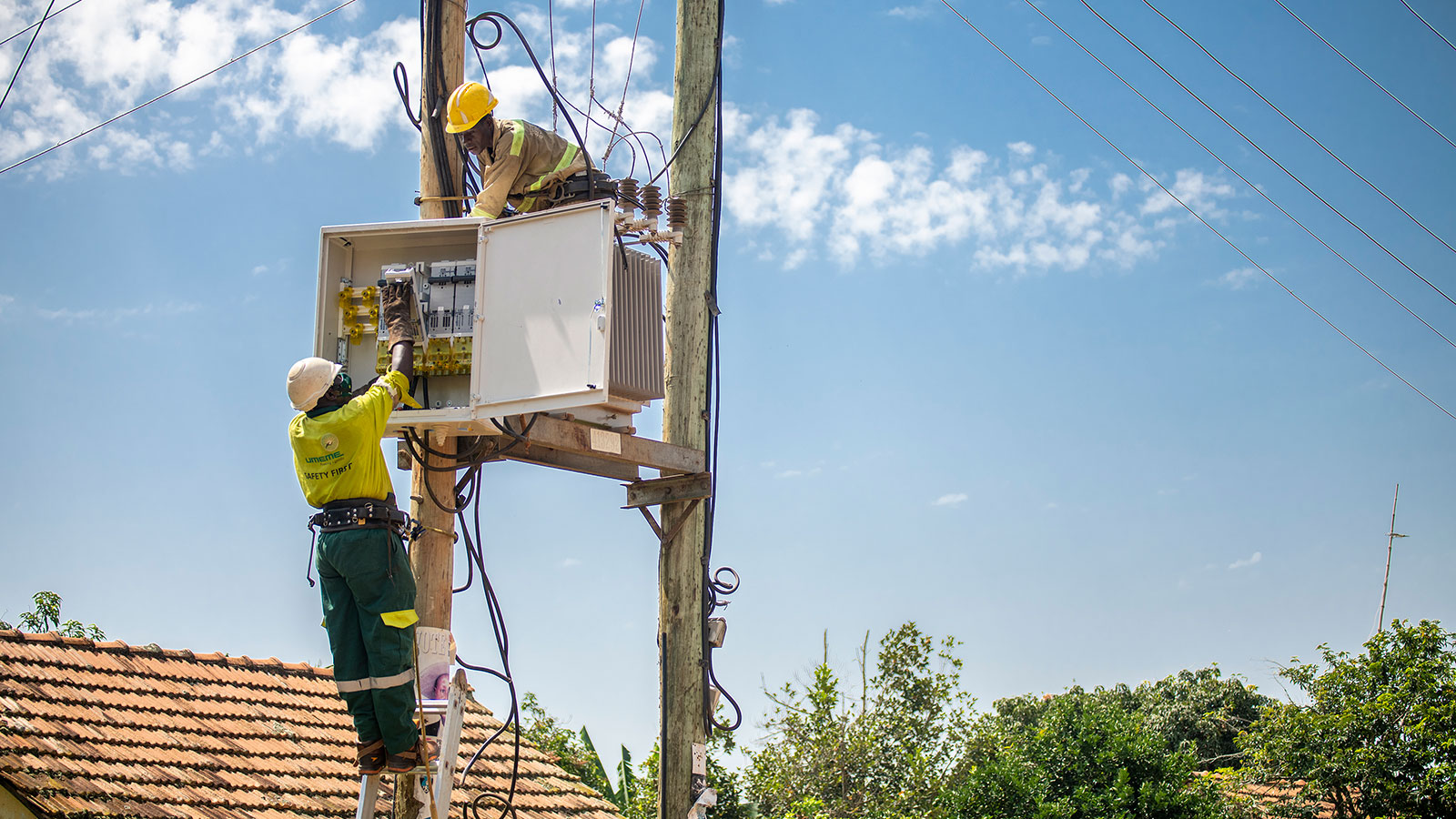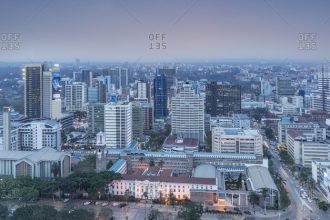Chinese lenders have agreed to provide over half of the $3 billion in debt required to construct a crude oil pipeline in Uganda. This decision comes after Western banks withdrew their financial support due to environmental objections raised by advocacy groups.
The Ugandan Ministry of Energy and Mineral Development anticipates finalizing negotiations with the China Export & Credit Insurance Corporation (Sinosure) and the Export-Import Bank of China (Eximbank) next month to fund the East African Crude Oil Pipeline (EACOP).
Irene Bateebe, the ministry’s permanent secretary, disclosed that Sinosure and Eximbank, both Chinese state-owned institutions, will provide more than 50% of the required debt. She stated, “We are nearing the conclusion of discussions with Chinese lenders for financial closure. We are confident that we will secure the debt component and most of the project’s funding by the end of October this year.”
Uganda needs approximately $5 billion for the pipeline, which will run from Lake Albert’s oilfields to a storage and loading facility in Tanzania’s port of Tanga. The funding will follow a 60:40 debt-to-equity ratio, with $3 billion secured as debt and the remaining $2 billion raised through equity contributions from shareholders.
TotalEnergies holds a 62% stake in the pipeline, while the Uganda National Oil Company and Tanzania Petroleum Development Corporation each have 15%. The remaining 8% belongs to the Chinese oil company China National Offshore Oil Corporation (CNOOC).
The 1,443-kilometer (896-mile) pipeline will transport crude oil from Uganda’s Lake Albert oilfields in the northwest to Tanga, Tanzania, on the Indian Ocean, where the oil will be sold to global markets.
Apart from Chinese lenders, Uganda also expects financial support from Saudi Arabia’s Islamic Development Bank and several African banks, including the African Export-Import Bank.
Initially, many Western banks expressed interest in financing the project but withdrew due to strong opposition from environmental and human rights groups. These groups argue that the oilfields and pipeline pose threats to the region’s delicate ecosystem and the livelihoods of local residents. Additionally, environmentalists contend that Uganda’s oil plans contradict the global transition away from fossil fuels.
Uganda’s oil reserves were discovered in 2006, and it holds an estimated 6.5 billion barrels of crude oil, equivalent to 1.4 billion barrels of recoverable oil. However, the final investment decision for the $10 billion project, including oilfield development and pipeline construction, was only made last year.
CNOOC operates the Kingfisher oilfield on the eastern shores of Lake Albert and will invest an estimated $2-3 billion in its development. It is expected to produce 40,000 barrels per day at peak production. Another oilfield, Tilenga, operated by TotalEnergies, is larger and estimated to cost between $4 billion and $6 billion to develop, with a peak production capacity of 190,000 barrels per day.
Development and production well drilling for Kingfisher and Tilenga began in January and June 2023, respectively. Uganda aims to become an oil-exporting nation by 2025.
Environmental groups, organized under the banner #StopEACOP, have lobbied Western financiers to abandon the project. They claim that major banks, including Barclays, Credit Suisse, Citi, HSBC, Deutsche Bank, Morgan Stanley, and JP Morgan Chase, have already ruled out supporting the pipeline.
South Africa’s Standard Bank and the Industrial and Commercial Bank of China (ICBC) are acting as financial advisors and lead debt arrangers for EACOP. ICBC holds a 20% stake in Standard Bank, South Africa’s largest lender.
Japan’s Sumitomo Mitsui Banking Corporation also rejected financing the project, although its role as a debt arranger and advisor remains unclear.
Last year, the European Parliament passed a resolution calling for a halt to the project due to environmental and human rights concerns, warning TotalEnergies against involvement.
Uganda argues that Western countries’ pressure to abandon its oil plans does not consider the full picture. Bateebe emphasized the country’s commitment to developing its oil and gas sector in an environmentally sustainable manner while pursuing renewable energy. She stated, “The oil sector, which we are developing in a sustainable way environmentally, will support us in our energy transition by providing financing. Otherwise, it is not enough to come to countries like ours and say we must transition without a financing plan for the transition.”
In support of Uganda’s projects, the Chinese embassy in Uganda criticized the European Union for attempting to obstruct Uganda’s oil ambitions. Chinese ambassador to Uganda Zhang Lizhong argued that the EU should not use environmental and human rights issues as excuses to hinder the development of the oilfields and pipeline.




















